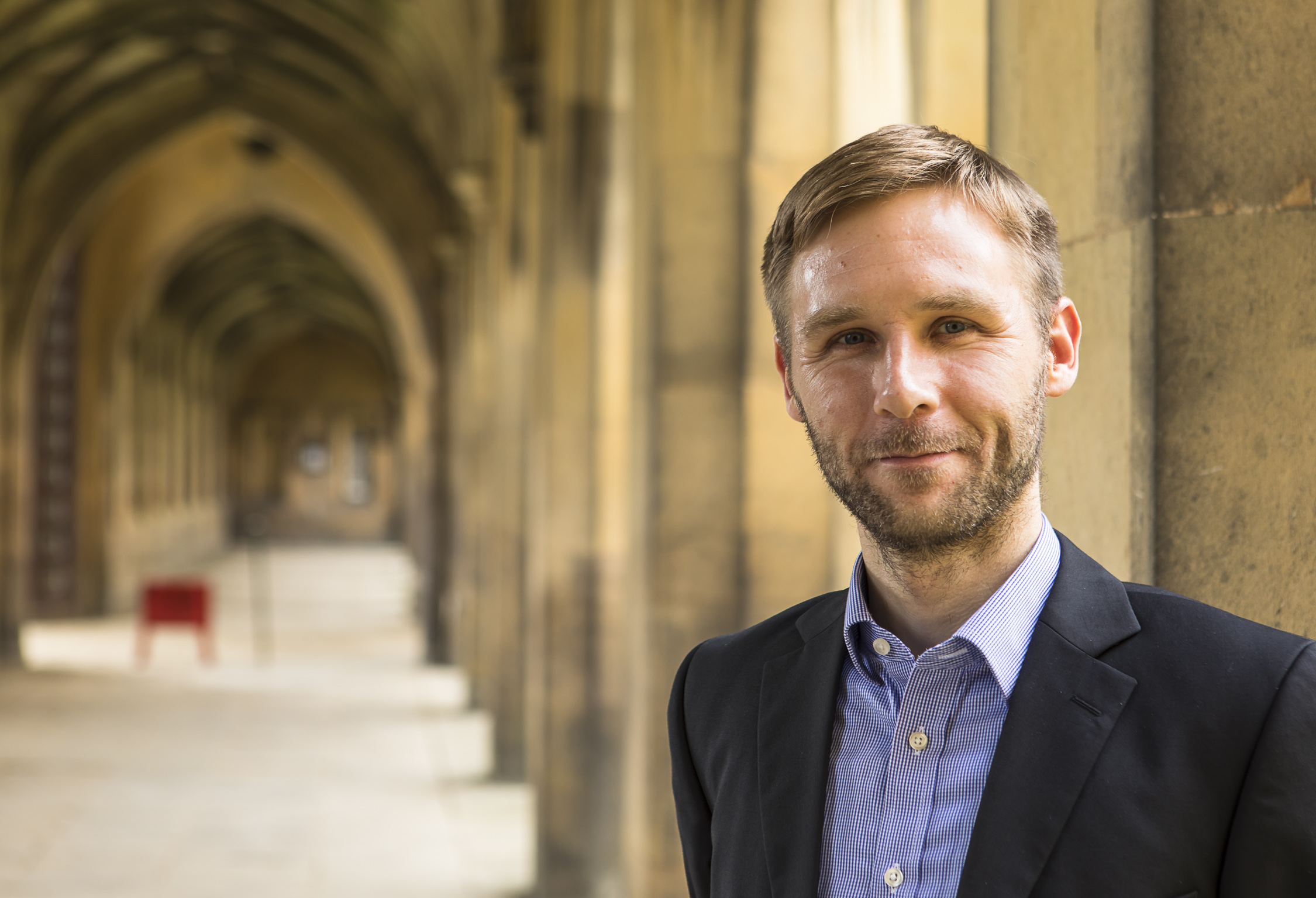Pioneering academic wins European grant for new research into protein failures underlying disease
“This funding not only empowers bright minds from across Europe but also helps train the youngest generation of researchers”
A St John’s biophysicist at the forefront of research into the causes of neurodegenerative disorders such as Alzheimer’s has won a Consolidator Grant from the European Research Council (ERC), while a pioneering chemist has been awarded funding towards commercially developing a process that sustainably turns waste into hydrogen.
Professor Tuomas Knowles receives a share of a €655 million funding package awarded to 327 researchers – including 50 in the UK – as part of the EU’s research and innovation programme, Horizon 2020. The ERC, which is Europe’s premiere funding organisation for frontier research, announced the Consolidator grantees in December, with funds going to outstanding researchers of any nationality and age, with at least seven to 12 years’ experience after PhD, and a scientific record of showing great promise.
Meanwhile, Professor Erwin Reisner is among eight UK-based researchers to be awarded a Proof of Concept (PoC) ERC grant in the Horizon 2020 programme, announced on 7 January. The ERC is handing out a total of €8.25 million for 55 PoC projects, with funding helping researchers take their ideas a step closer to market. The Reisner Lab is exploring the solar-driven reforming of waste into hydrogen, a project called SolReGen.
The award-winning Consolidator research projects cover a wide range of topics in physical sciences and engineering, life sciences, social sciences and humanities, enabling the grantees to consolidate their teams and have a far-reaching impact. The project proposed by Professor Knowles, College Lecturer in Nanoscience and Fellow of St John’s, is titled Digital Protein Biophysics of Aggregation.

Professor Jean-Pierre Bourguignon, ERC President, said: “This funding not only empowers bright minds from across Europe to pursue their most ambitious ideas at a critical stage of their careers, but also helps train the youngest generation of researchers as members of their ERC teams. To prepare for the challenges of tomorrow, Europe must stick to the vision of investing in frontier research, which has proved time and again its crucial added value.”
Professor Knowles’ Lab is an interdisciplinary group based at Yusuf Hamied Department of Chemistry, the Cambridge Centre for Protein Misfolding Diseases and the Cavendish Laboratory in Cambridge. Their work is focused on understanding the basic molecular principles that govern the activity of proteins in health and disease.
Professor Knowles explained: “We are interested in how proteins come together to form machinery and compartments that underpin the functions of a living cell, and what happens when these processes fail. The ERC project is focused on understanding how proteins condense together to form functional liquid organelles, and how such compartments can gel and form irreversible protein aggregates associated with disease.
“Such problems have been challenging to study previously due to the very high heterogeneity of the structures that are formed which make observation by conventional bulk techniques challenging. We will be developing new single molecule approaches to study this phenomenon aggregate by aggregate and cell by cell, and in this way shed light on the connection between the physical and structural properties of protein assemblies and their biological activity.”
Research led by Professor Knowles, Professor Chris Dobson, the late Master of St John’s, and Professor Michele Vendruscolo identified the molecular triggers for neurodegenerative disorders such as Alzheimer’s and Parkinson’s disease in 2013. It is hoped new techniques for earlier diagnosis and improved treatment of such diseases can be developed with better understanding of underlying molecular processes.
Professor Knowles said: "I am truly delighted by this support of my research and that of my group which will allow us to develop fundamentally new approaches for probing a process at the core of biological function and malfunction.”
Professor Reisner's Lab is also based at Yusuf Hamied Department of Chemistry. The PoC funding will support the team's research into the scalability and eventual commercialisation of its environmentally friendly SolReGen project to create sustainable hydrogen. Professor Reisner, Professor of Energy and Sustainability and St John's Fellow, said: “This grant will allow us to improve our process and help us to develop a sustainable business model for commercialisation."
The following four researchers from the University of Cambridge were also named as Consolidator grantees: Vasco Carvalho, Professor of Macroeconomics and Director of Cambridge-INET (Micro Structure and Macro Outcomes); Dr Neel Krishnaswami of the Computer Laboratory (Foundations of Type Inference for Modern Programming Languages); Dr Kaisey Mandel of the Institute of Astronomy and the Statistical Laboratory of the Department of Pure Mathematics and Mathematical Statistics (Next-Generation Data-Driven Probabilistic Modelling of Type Ia Supernova SEDs in the Optical to Near-Infrared for Robust Cosmological Inference); Professor Silvia Vignolini of the Yusuf Hamied Department of Chemistry (Sym-Bionic Matter: developing symbiotic relationships for light-matter interaction). An ERC PoC grant was also awarded to Dr Akshay Rao of the Cavendish Laboratory, Department of Physics (PM2PV project).
Published: 4/1/21
Updated: 11/1/21